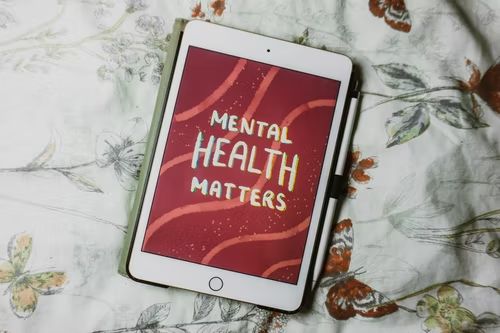Oral History is sometimes about recounting painful, difficult or traumatic memories. This can be distressing for not only the interviewee but the interviewer as well. Sometimes we can be blindsided or surprised by the impact of conducting an interview regardless of the topic due to all the associations it has brought to mind positive and negative.
As a transcriber of oral history interviews, I have come across upsetting content. These experiences with transcribing these audios has left me with more questions regarding the well-being of the oral historians conducting these interviews. Like what should oral historians with regards to their mental health do if they have been negatively affected by an interview? What sorts of formal and informal support is there? Who do oral historians’ offload to?
Now, I’m no trained psychologist nor am I a shrink, but it is well known that secondary exposure to trauma compounded with the risk of burnout and well-being challenges posed by working conditions can be deadly to one’s own mental health.
These questions got me doing my own research and gathering data on this area of well-being and I discovered certain pathways towards better researcher well-being. Incorporating good mental health into research activities shouldn’t be considered as a choice and it can only be successfully achieved through a combined effort of the researchers and participants.
While there are legal and ethical issues that are in place and should be considered, the different parties involved in the research process either directly or indirectly, need to ensure they are playing a proactive part as well. The partners should try and ensure the well-being of researchers.
Research Funders

Traditionally, it is known that research funders have a duty to receive grant applications, evaluating them, and funding the most suitable ones and later on evaluating the research outputs. In addition to this, research funders should also seek to start a more active and meaningful discussion towards researcher well-being. This can be done through-
- Setting aside funding to mitigate risk to researchers. Including access to clinical supervision and counseling during and after research.
- Reviewing the well-being practices of the university and providing grant application opportunities to those that have proper measures in place for researcher well-being.
- Gather feedback from researchers on the short and long-term impact of the research conducted and develop an action plan to better the researcher’s well-being.
Supervisors and Line Managers

Apart from fostering the intellectual and scholarly development of their students, they also can play an important role in the well-being of researchers in the following few ways-
- Having regular meetings to revisit risk assessment and oversee well-being and health and safety of the researchers.
- Dedicate to complete training in pastoral support and leadership to understand the legal and moral responsibilities of your role and reduce stigma.
- Ensure the different university departments involved in the research provide support facilities and devise projects with the wellbeing of research associates in mind, and consider meaningful career development.
Universities

When it comes to the well-being of researchers, universities not only have the responsibility to provide the facilities but they too have a role to play when it comes to the wellbeing of researchers.
- Take a proactive and meaningful approach to ensure the well-being and mental health of the researchers is taken seriously at all levels and discussions are encouraged and normalized among staff.
- Ensure all disciplines are fulfilling their duty to staff by doing follow-ups on supervisors and departments and release transparent annual performance reports.
- Provide expert training for supervisors and counseling services for researchers.
- Provide easy access for staff to specialist clinical supervision and counseling.
Researchers

As a researcher you also have a role to play when it comes to your own well-being. Below are some ways to do so.
- Practice self-care and identify other sources of support with your supervisors which may include peer support, counseling, decompression activities and grounding techniques that can help detach one from emotional pain or stress.
- Set boundaries and acknowledge the emotional and physical impact of your research.
- Conduct regular risk assessments between researchers and supervisors to identify changing risk and vulnerabilities health and safety issues, training needs and assist workload planning. Start this prior to research and continue throughout the research process.
Conclusion
Mental health and wellbeing gain rightful attention within many workplaces and academic disciplines, oral historians seem to not share in this progress widely. If you feel that your well-being has been affected it is advisable to seek counseling or talk about it with your peers either formally or informally.
Further reading:
D. Jones, ‘Distressing histories and unhappy interviewing’, Oral History, 1998, vol. 26 no. 2, pp. 49-56
Martha Norkunus, ‘The Vulnerable Listener’, in Anna Sheftel and Stacy Zembrzycki, Oral History off the Record: towards an ethnography of practice (Palgrave, 2013), pp 81 – 96.
Please note there is so much more reading material available for Oral Historians. It is not limited to what is above.
That’s it for this blog, I do hope it was helpful. Please feel free to contact us with any questions and kindly consider us for future transcription services you may need for your oral history interviews. Remember, always be kind, try to stay positive and learn to unwind.
